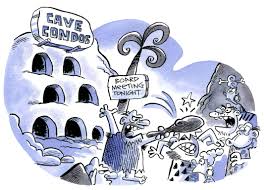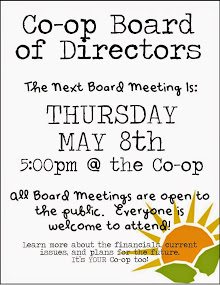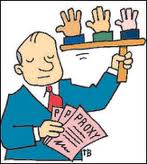 Attorneys provide valuable legal services on behalf of cooperative and condominium boards. Some buildings with fewer than ten units and without disputes have managed without an attorney representing the board. Other buildings may continue with the attorney who originally represented the sponsor. The purpose of this blog post is to describe the services that can be provided by an attorney representing a cooperative or condominium board.
Attorneys provide valuable legal services on behalf of cooperative and condominium boards. Some buildings with fewer than ten units and without disputes have managed without an attorney representing the board. Other buildings may continue with the attorney who originally represented the sponsor. The purpose of this blog post is to describe the services that can be provided by an attorney representing a cooperative or condominium board.
Transfers of apartments will occur at some point. It is not unusual for the building’s managing agent to conduct closings. While many managing agents conduct a variety of tasks and are indispensible to the building, their knowledge is largely operational and particularly relevant to the physical plant of the building. Attorneys are properly situated to evaluate legal situations presented before and during a closing. For instance, after a shareholder dies, the family may wish to transfer the apartment to a family member or sell the apartment to a third party. A managing agent is not the best person to evaluate whether the seller/transferor has delivered the proper documents. Does a managing agent know to ask for a Will to make sure that the deceased did not bequeath the apartment to a friend? It may be a mistake with potential legal liability to the cooperative if the apartment is transferred to a purchaser rather than to the friend. Can the managing agent properly review the Letters Testamentary or Letters of Administration to confirm that they are valid to pass the apartment in question? Sometimes estate documents could even be presented from other jurisdictions, requiring a trained legal practitioner to evaluate. The managing agent may mistakenly approve a power of attorney or affidavit of lost stock certificate and proprietary lease that is invalid for some reason, fail to obtain original documents that are necessary for the cooperative to hold, or fail to collect fees on behalf of the building. A variety of issues may be encountered by a transfer agent at a closing which require the judgment and discretion of the building’s attorneys. In this instance, our firm charges the parties to the transaction only, so that engaging our services to be the transfer agent for closings does not cost the building as a whole and potentially benefits the building as a whole by avoiding legal liability.
Cooperatives and condominiums should also engage an attorney for occasional but significant legal events, such as the refinance of the underlying mortgage of a cooperative or the negotiation of a major contract. Such a major contract could pertain to the replacement of windows, renovation of the elevator, or installation of a new roof. Vendor contracts, such as for the laundry room equipment or oil delivery company require review by the building’s attorney because they will contain provisions that are only favorable to the vendor. Since managing agents may have professional relationships with some of these vendors, it may be prudent for “checks and balances” purposes for the building attorney to review these vendor contracts. Certainly an experienced attorney will be in the position of offering terms that are beneficial to the building that an untrained eye may miss.
 New York Real Estate Lawyers Blog
New York Real Estate Lawyers Blog


 Our readers may be familiar with a cooperative apartment building located in Manhattan by the name of River House. This building is known not only for its distinctive classic architecture and regal location, but also by its stringent admissions standards for purchasers. It has been well known throughout the New York real estate community that the River House has declined the purchase applications of numerous famous people and persons with seemingly substantial assets. This culture has resulted in apartments being listed for sale for years, because potential purchasers cannot get approved by the board. Overly rigorous standards hurt all residents, as apartments will not sell as readily.
Our readers may be familiar with a cooperative apartment building located in Manhattan by the name of River House. This building is known not only for its distinctive classic architecture and regal location, but also by its stringent admissions standards for purchasers. It has been well known throughout the New York real estate community that the River House has declined the purchase applications of numerous famous people and persons with seemingly substantial assets. This culture has resulted in apartments being listed for sale for years, because potential purchasers cannot get approved by the board. Overly rigorous standards hurt all residents, as apartments will not sell as readily.  Recently in the news is the rather
Recently in the news is the rather  A recent
A recent  In a
In a  May and June of each year tend to be “annual meeting season” for our cooperative and condominium clients. At such meetings, the shareholders of cooperatives and unit owners of condominiums elect their board of directors or board of managers. Those who serve on boards are hard working volunteers, participating on a weekly if not daily basis. Those who attend annual meetings may only attend one meeting a year to question and judge those who participate on their behalf on a constant basis. This blog post will address how to properly conduct annual meetings and why smoothly run annual meetings are important. Although our law firm also conducts annual meetings for condominiums and religious corporations, this post will be limited to cooperative corporation annual meetings.
May and June of each year tend to be “annual meeting season” for our cooperative and condominium clients. At such meetings, the shareholders of cooperatives and unit owners of condominiums elect their board of directors or board of managers. Those who serve on boards are hard working volunteers, participating on a weekly if not daily basis. Those who attend annual meetings may only attend one meeting a year to question and judge those who participate on their behalf on a constant basis. This blog post will address how to properly conduct annual meetings and why smoothly run annual meetings are important. Although our law firm also conducts annual meetings for condominiums and religious corporations, this post will be limited to cooperative corporation annual meetings. it merely needs to hold its meetings at regular intervals each year. The By-Laws specify that the notice of annual meeting is to state that the business to be conducted is to elect directors and to conduct other business specifically identified in the notice, should state the time, date and place of the meeting, and who needs to sign the meeting notice.
it merely needs to hold its meetings at regular intervals each year. The By-Laws specify that the notice of annual meeting is to state that the business to be conducted is to elect directors and to conduct other business specifically identified in the notice, should state the time, date and place of the meeting, and who needs to sign the meeting notice.  Our readers may have read a
Our readers may have read a  Some of our
Some of our  An article in
An article in  Regional news outlets in the New York metropolitan area recently reported on
Regional news outlets in the New York metropolitan area recently reported on